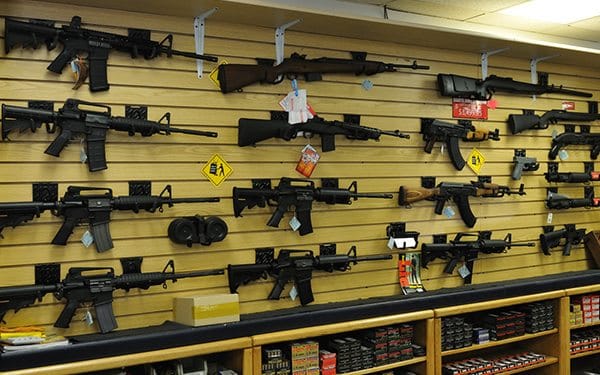Data from the University of Washington shows that Thailand has the highest rate of gun-related deaths out of ten countries in Asia, reports Channel News Asia, confirming what many have suspected for some time: the Kingdom may just have a gun problem on its hands.
These statistics are particularly galling when one considers the recent fatal shootings that have befallen Thailand – just this past Valentine’s Day, a man shot and killed himself and his lover at a Nonthaburi department store, for instance.
Deaths from shooting in Thailand clocked in at 7.48 fatalities per 100,000 people in 2013 – a figure 50 percent higher than the Philippines, who were the next country in the ratings, and double the rate seen in the US.
For a full analysis of these statistics, see Asian Correspondent as they highlight the discrepancies and gaps.
Regardless of the statistical details, however, it’s clear that violent gun crime is prevalent in the Kingdom even if we just go by newspaper headlines alone. But why?
Gun ownership in Thailand is widespread with over six million registered guns found in the Kingdom. In a country with a population of 67 million, that’s an ownership rate of around one in ten. Gunpolicy.org believe the actual figure to be closer to 10 million guns, if illegal ownership is to be taken into the equation.
Acquiring guns here is reportedly easy – a handgun and permit can be bought for just US$600 with a minimal paper trail. There’s no psychological analysis undertaken prior to purchase and apparently, a low understanding of legal issues and criminality.
“Many Thais own a gun but have no idea about the law,” says Wanphiti Wanalert, a former police gun instructor. “They are not even interested in knowing the law. But once you own a gun there is already a chance that you could break the law.
“I want the laws to be reformed,” he continued. “I believe that anyone that applies to own a gun should be subjected to a psychological evaluation.”
The motivations behind fatal shootings in Thailand are varied and complicated, although many reasons are tied up in the emotional complexities that surrounds ‘loss of face’, or the perception of such.
Anecdotal evidence suggests that a loss of emotional control contributes to gun crime, with anger accelerating from 0 to 100 in double time as shots are fired in tense situations. Alcohol, of course, exacerbates this problem. This issue suggests a measure like psychological evaluation, to check that a potential gun owner can and will exert self control with their firearm, would be a helpful step in the fight to lower Thailand’s gun crime rates.
The problem is undoubtedly complex and finding a solution acceptable to all sides of the gun control debate will be hard.


